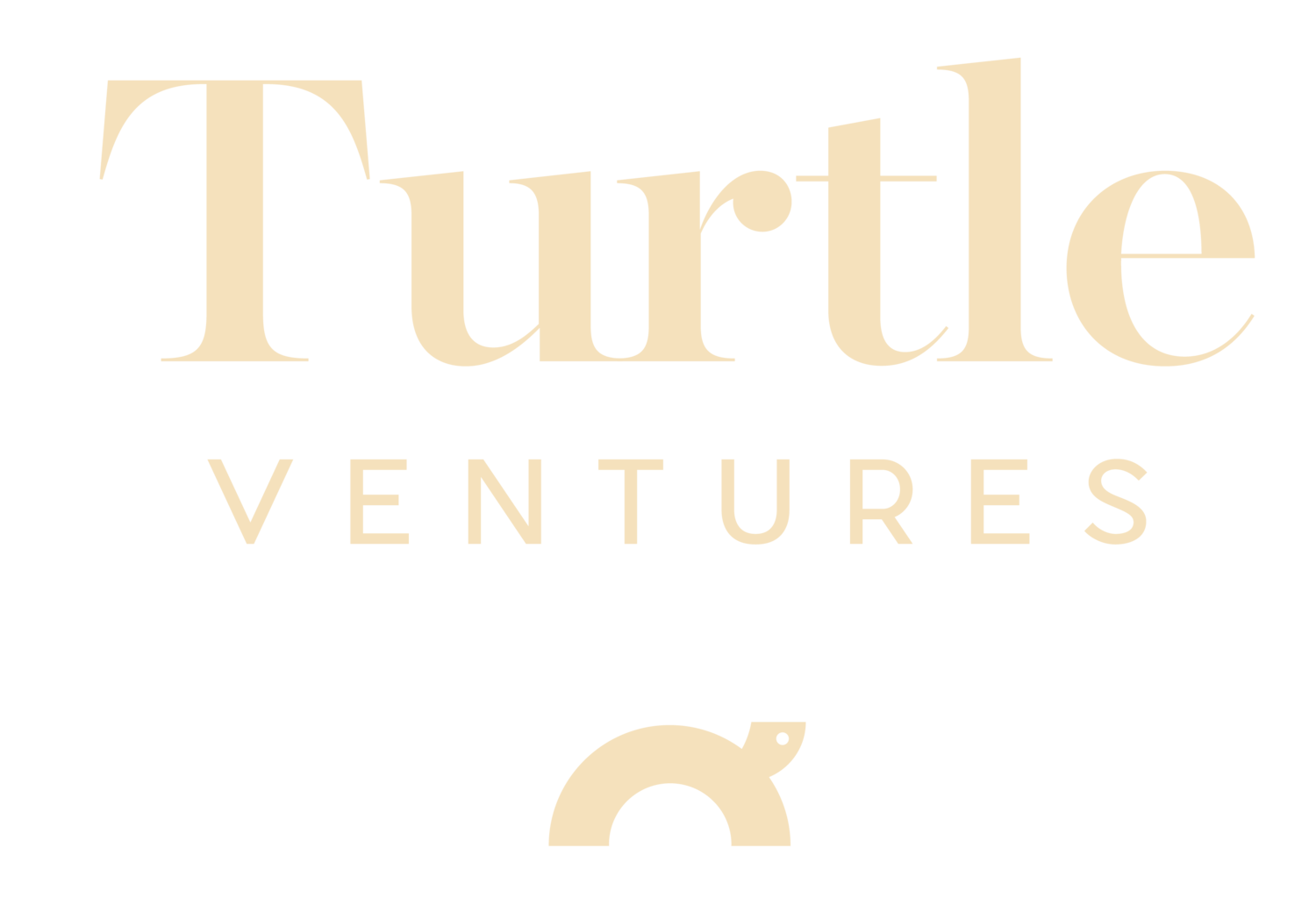
MARKETPLACE MANIFESTO
Efficiency for the Win
Turtle Ventures invests in winners in massive existing markets with massive inefficiencies.
Here’s Why…
Many of the best tech companies in the world tackled existing markets and brought efficiency (and corresponding low prices and high customer convenience) to a large industry.
Barnes & Noble → Amazon
Made buying books more efficient.
Blockbuster → Netflix
Made renting DVDs more efficient.
MySpace → Facebook
Made a better UX.
Webex → Zoom
Made videoconferencing that worked better.
Paper → DocuSign
Made contracts easier to process.
Craigslist → OfferUp
Made selling stuff easier.
Walgreens → Alto Pharmacy
Made getting prescriptions easier.
Taxi → Uber
Made hailing a cab easier.
Stubhub → Lyte
Made selling tickets easier.
Marketplaces are the way to drive efficiency, improve customer experience, decrease transaction friction, and build long term defensible moats. In almost every industry, there is room for massive improvement in efficiency.
The list of massive marketplaces goes on…
There’s Amazon, Alibaba, Etsy, Yelp, Netflix, and more. All of these markets existed long before the marketplace came along. Before Etsy, there were thousands of small local craft fairs and lots of crappy individual e-commerce sites. The marketplace came along and radically increased efficiency of the transaction. These opportunities exist in most major industries.
Let’s look at a few more examples
Playbook io
Playbook is differentiated by their Creator app — they work with world class personal trainers to post almost daily new workouts and allow the trainers to engage with users. It’s replicating more of a training experience in a more efficient manner than the status quo. There are hundreds of thousands of personal trainers that run their own small business and may have some online courses, but it’s never been done in a highly efficient manner.
By driving efficiency, a company can pass those efficiency gains on to consumers in the form of increased convenience, lower customer effort, and lower total cost. When customers receive these gains, their customer satisfaction (NPS) will be very high because it’s compared to other options in the industry. With high NPS, the company will be able to unlock organic growth and therefore better unit economics than the competition. This becomes a compounding effect whereby the new entrant can gain significant market share very quickly.
Alto Pharmacy
To the end customer, Alto Pharmacy is very simple - it’s a pharmacy that delivers. It’s a $400B+ market in the US. The customer experience is phenomenal and dramatically improves the efficiency in procuring prescriptions with no driving to and waiting at local pharmacies like Walgreens or CVS. The customer NPS (Net Promoter Score) is 88 vs. traditional pharmacies that are more like 10-30%. The customer experience is so good, that once a user tries Alto once, we believe we have a customer for life.
Another part of the flywheel is the expansion to other family members and other therapeutic areas, eg, my wife uses Alto at the Obgyn, I learn about it and bring it my general practitioner, and then I request Alto at my son’s pediatrician.
Behind the scenes, Alto has a large product and engineering team to automate as much of the process as possible so they can drive efficiency in this model.
THE PILLARS OF EFFICIENCY
So, how do marketplaces drive this amazing efficiency?
Make discovery faster, better, and more accurate.
First, the process of discovery can be incredibly time-consuming. Marketplaces can standardize data around sellers, rank and review all of the sellers, and provide an extremely powerful layer of data to make the searching and matching process far more efficient than ever before.
Make transactions easier, safer, and more frictionless.
Next, you’d transact. The transaction process itself can also be cumbersome depending on the industry. Move the market from a time-consuming caveat emptor (buyer beware) model to a managed marketplace that buyers and sellers both love.
For founders…
Choose your industry carefully. Avoid pitfalls of low fragmentation or high degrees of consistent, monogamous usage. Focus on efficiency improvements in discovery and transactions. Double down on factors that drive long-term network effects of users, data, rankings, and economies of scale. Build the vision for how the industry should work and lay out the master plan to get there.
Then, please come talk to me.


